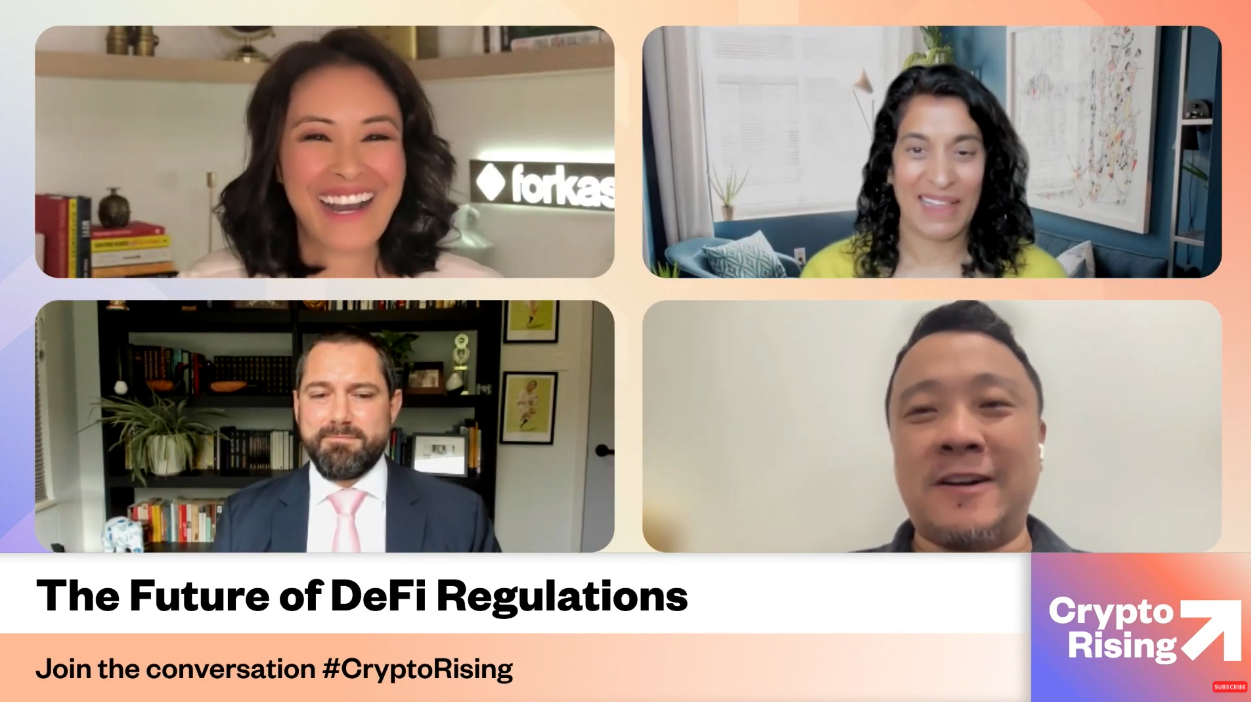In late September, the U.S. Commodity Futures Trading Commission (CFTC) fined blockchain protocol bZeroX and its founders Tom Bean and Kyle Kistner US$250,000 for allegedly offering illegal, off-exchange digital assets trading without registering and complying as a futures commission merchant.
A decentralized autonomous organization (DAO) named Ooki DAO was included in these charges as the CFTC found it to be the successor to bZeroX. Ownership of the DAO had been transferred in August 2021, but the CFTC said it had been operating in essentially the same way as before.
Bean and Kirstner pushed back on these charges, claiming that as the DAO was in charge of the protocol, it was shielded from enforcement.
As DAOs continue to develop, law enforcement and regulators are having to play catch up with a rapidly evolving industry, according to panelists speaking at Forkast’s recently live-streamed event “Crypto Rising: The Role of Law: An International Debate post Tornado Cash.”
“DAOs raise really interesting questions,” said Jonathan Crompton, partner at RPC in Hong Kong, adding that just labeling something a DAO does not make it immune from enforcement.
“Is a DAO a grouping of individuals? Is it incorporated as a company?” he said. “Frankly if it’s not incorporated as a company, the individuals are probably at risk themselves because they control a protocol and individually are making decisions. It would be better to incorporate as companies so that there’s limited liability.”
DAOs are organizations that are governed by smart contract algorithms that are meant to operate in a decentralized manner without a central decision maker. They often issue tokens for users to participate in the governance of the organization.
DAOs usually spring up around a shared idea or goal, such as the ill-fated ConstitutionDAO that formed to buy a copy of the U.S. Constitution.
Wei Zhou, CEO of Philippines-based crypto and mobile wallet Coins.PH, said the CFTC’s enforcement action highlights how “out of step” current regulations are with the rapidly evolving crypto industry.
As far as limited liability companies go, Zhou said the concept was still being fine-tuned up to the 1990s, and, as such, it’s going to take awhile to figure out where platforms such as DAOs fit into it — especially as the debate continues on which digital assets should be considered securities.
“All [enforcement agencies] have is basically reference points of regulations and laws that were passed previously,” said “They just basically take interpretations of what they had as their reference and apply them [to new technologies].”
Zhou also said that these types of organizations are proving to be challenging for lawmakers and law enforcement as so much of the blockchain industry is supranational.
“Blockchain capital formation is global, right?” he said. “But we’re still dealing with companies that are regional. And I think that’s the biggest challenge.”
“We don’t really have anything that talks about if I want to form an international company, how does that work?”

